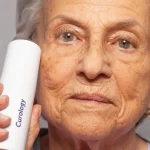Every person’s hair is unique and requires individualized hair care. With so many hair care products available in the market, it can be overwhelming to find the right ones for your hair type. Choosing the wrong products can lead to damaged and lifeless hair, which is why it’s crucial to understand the characteristics of your hair and what Haircare Products work best for you. In this ultimate guide, we’ll walk you through the process of selecting the best hair care products for your hair type. We’ll cover everything from identifying your hair type and texture to understanding the ingredients that work best for each hair type. Whether you have curly, straight, thick, or fine hair, we’ve got you covered. With the help of this guide, you’ll be able to create a hair care routine tailored to your hair’s unique needs, leaving you with healthy, luscious locks that turn heads. So, let’s get started!
Understanding Your Hair Type For Haircare Products
Before choosing any hair care products, you need to understand your hair type. There are four types of hair textures: straight, wavy, curly, and coily. Straight hair is the most common hair type and has a smooth, silky texture. Wavy hair is characterized by its S-shaped waves that can range from loose to tight. Curly hair has a spiral or ringlet shape and can be prone to frizz. Coily hair has a tight, springy curl pattern and can be the most fragile of all hair types.
It’s important to note that hair type isn’t the only factor that affects hair care. Hair density, porosity, and elasticity also play a significant role in determining what products are best for your hair. Hair density refers to the number of hair strands on your head, while porosity measures how well your hair can absorb and retain moisture. Elasticity refers to how much your hair can stretch without breaking.
Understanding your hair type and its unique characteristics will help you choose the best hair care products for your hair.
Identifying Your Hair Concerns
Once you’ve identified your hair type and texture, it’s time to identify your hair concerns. Do you have dry, damaged, or frizzy hair? Are you experiencing hair loss or thinning? Identifying your hair concerns will help you choose the right products to address those issues.
Dry hair is a common concern for many people, especially those with curly or coily hair. Dry hair can be caused by a lack of moisture, overuse of heat styling tools, or exposure to environmental factors such as sun and wind. Look for products that contain ingredients such as shea butter, coconut oil, or argan oil, which can help moisturize and nourish your hair.
If you have damaged hair, look for products that contain protein, such as keratin or hydrolyzed wheat protein, which can help strengthen and repair your hair. For frizzy hair, look for products that contain ingredients such as silicone or glycerin, which can help smooth and tame frizz.
Ingredients to Look for in Haircare Products
Choosing the right ingredients is crucial for maintaining healthy hair. Here are some ingredients to look for in hair care products:
- Shea Butter: Shea butter is a natural moisturizer that can help hydrate and nourish hair. It also contains vitamins A and E, which can help protect hair from damage.
- Coconut Oil: Coconut oil is a popular ingredient in hair care products due to its ability to penetrate the hair shaft and moisturize from within. It can also help prevent protein loss in hair.
- Argan Oil: Argan oil is a lightweight oil that can help hydrate and nourish hair without weighing it down. It’s rich in antioxidants and vitamin E, which can help protect hair from damage.
- Keratin: Keratin is a protein that is naturally found in hair. It can help strengthen and repair damaged hair.
- Hydrolyzed Wheat Protein: Hydrolyzed wheat protein is a protein derived from wheat that can help strengthen and repair damaged hair.
Ingredients to Avoid in Haircare Products
Just as important as knowing what ingredients to look for, it’s important to know what ingredients to avoid in hair care products. Here are some ingredients to avoid:
- Sulfates: Sulfates are harsh detergents that can strip hair of its natural oils, leading to dryness and damage.
- Alcohol: Alcohol can be drying to hair and may cause breakage.
- Silicones: While silicones can help smooth and tame frizz, they can also build up on the hair over time, leading to dullness and dryness.
- Mineral Oil: Mineral oil can clog pores and prevent moisture from penetrating the hair shaft.
- Parabens: Parabens are preservatives that have been linked to health concerns.
Choosing the Right Shampoo for Your Hair Type and Concerns
Shampoo is an essential part of any hair care routine. It helps remove dirt, oil, and product buildup from the hair and scalp. When choosing a shampoo, consider your hair type and concerns.
If you have dry hair, look for a moisturizing shampoo that contains ingredients such as shea butter or coconut oil. If you have oily hair, look for a clarifying shampoo that can help remove excess oil and buildup. If you have color-treated hair, look for a shampoo that is specifically formulated for color-treated hair and contains ingredients such as keratin or hydrolyzed wheat protein to help protect your color.
Choosing the Right Conditioner for Your Hair Type and Concerns
Conditioner is just as important as shampoo in a hair care routine. It helps hydrate and nourish hair, making it easier to detangle and style. When choosing a conditioner, consider your hair type and concerns.
If you have dry, damaged, or frizzy hair, look for a conditioner that contains ingredients such as shea butter, coconut oil, or argan oil. If you have fine hair, look for a lightweight conditioner that won’t weigh your hair down. If you have color-treated hair, look for a conditioner that is specifically formulated for color-treated hair and contains ingredients such as keratin or hydrolyzed wheat protein to help protect your color.
Hair Masks and Treatments for Specific Hair Concerns
In addition to shampoo and conditioner, hair masks and treatments can help address specific hair concerns. Here are some hair masks and treatments to consider:
- Deep Conditioning Masks: Deep conditioning masks can help hydrate and nourish hair, making it softer and more manageable. Look for masks that contain ingredients such as shea butter, coconut oil, or argan oil.
- Protein Treatments: Protein treatments can help strengthen and repair damaged hair. Look for treatments that contain ingredients such as keratin or hydrolyzed wheat protein.
- Scalp Treatments: Scalp treatments can help soothe an itchy, flaky scalp and promote healthy hair growth. Look for treatments that contain ingredients such as tea tree oil or peppermint oil.
Styling Products for Your Hair Type and Concerns
Styling products can help you achieve your desired look and protect your hair from damage. When choosing a styling product, consider your hair type and concerns.
If you have curly or coily hair, look for products that contain ingredients such as shea butter or coconut oil to help define your curls and reduce frizz. If you have fine hair, look for lightweight products that won’t weigh your hair down. If you use heat styling tools, look for products that contain heat protectants to help prevent damage.
Haircare Routine Tips for Healthy and Beautiful Hair
In addition to choosing the right hair care products, there are some simple tips you can follow to maintain healthy and beautiful hair:
- Wash your hair less frequently: Washing your hair too often can strip it of its natural oils, leading to dryness and damage. Aim to wash your hair every two to three days.
- Use a wide-tooth comb: A wide-tooth comb can help detangle your hair without causing breakage.
- Avoid heat styling tools: Heat styling tools can cause damage to your hair over time. If possible, let your hair air dry and use heat styling tools sparingly.
- Protect your hair from the sun: Exposure to the sun can cause damage to your hair, so be sure to wear a hat or use a protective spray when spending time outdoors.
Conclusion
Choosing the right hair care products can be overwhelming, but it doesn’t have to be. By understanding your hair type and concerns and choosing products with the right ingredients, you can create a hair care routine tailored to your hair’s unique needs. Remember to choose products that work for your hair type and concerns and follow simple tips to maintain healthy and beautiful hair. With the help of this ultimate guide, you’ll be well on your way to achieving the luscious locks you’ve always wanted.




